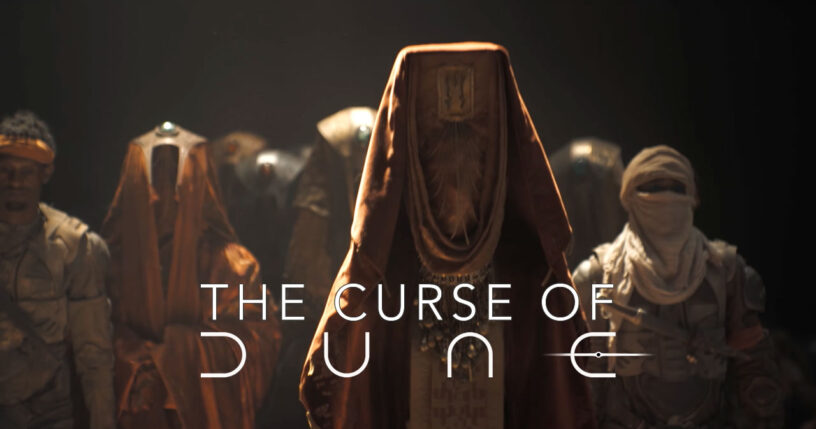There have been numerous attempts to adapt Frank Herbert’s Dune saga for the screen, many of which never made it past pre-production… Curiously, even those projects that were (successfully) completed did not escape from facing a multitude of problems during and/or after filming. This has led to some fans jokingly referring to Dune being “cursed”!
Following are the Dune movies and TV series projects to date—the first of which began more than five decades ago—and challenges they’ve faced:
Jacob’s Dune (1972-1973)

In 1972 Arthur P. Jacobs acquired the rights to Dune. Although two story treatments were made, work on the full script, and therefore the rest of production, was stalled when the Writers Guild of America went on strike on March 6, 1973. The strike lasted over 3.5 months, finally ending on June 24, 1973. Just three days later, however, Jacobs died of a heart attack, which ended work on the project.
Jodorowsky’s Dune (1974-1976)
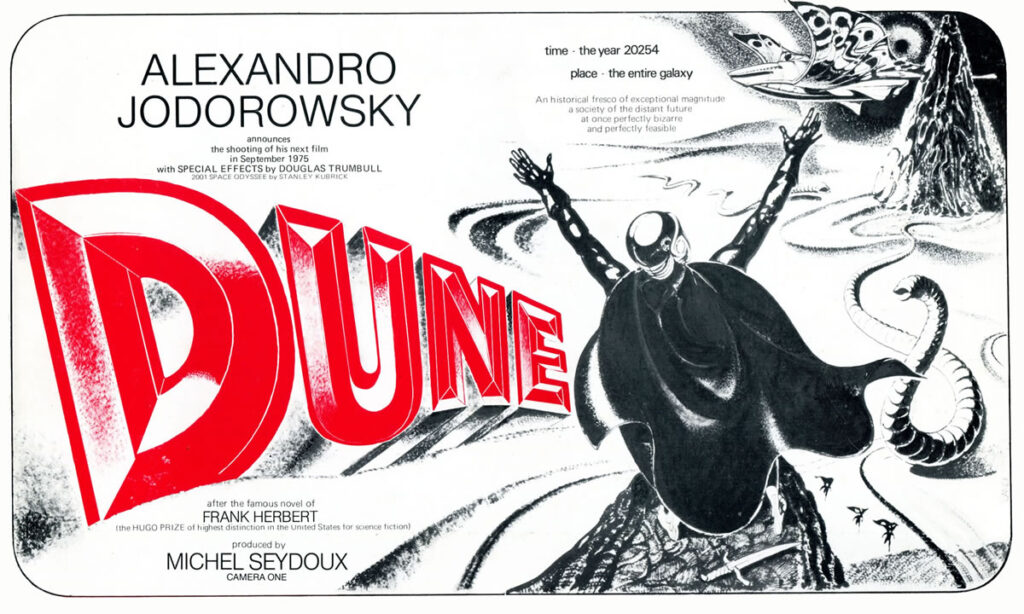
Alejandro Jodorowsky’s failed attempt to bring Dune to the big screen is well documented in the excellent Jodorowsky’s Dune (2013) documentary by Frank Pavich. Having spent several years and several million dollars, without producing a single frame of film, the project ultimately collapsed when funding from American studios couldn’t be secured.
Ridley Scott’s Dune (1979-1980)
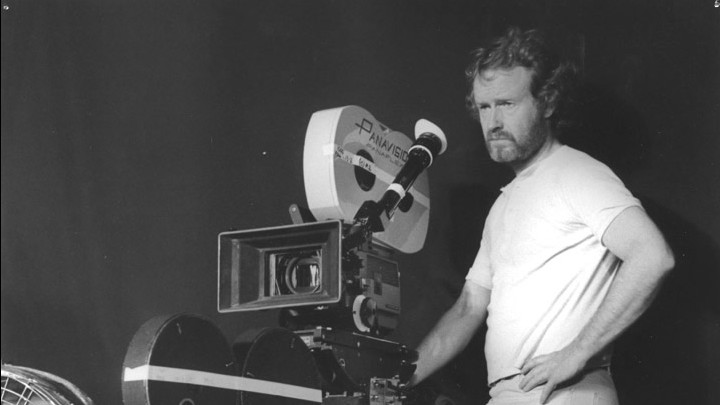
Around the middle of 1979, Dino De Laurentiis hired Ridley Scott, fresh from his success on Alien (1979), to direct Dune. Scott worked on this project for around seven months, writing the script with Rudy Wurlitzer. The project experienced problems with both script and budget, but things came to a head when the director’s older brother Frank Scott unexpectedly died of cancer. Not wanting to spend several more years working on Dune before filming could start, Ridley Scott left to film Blade Runner (1982).
Lynch’s Dune (1984)
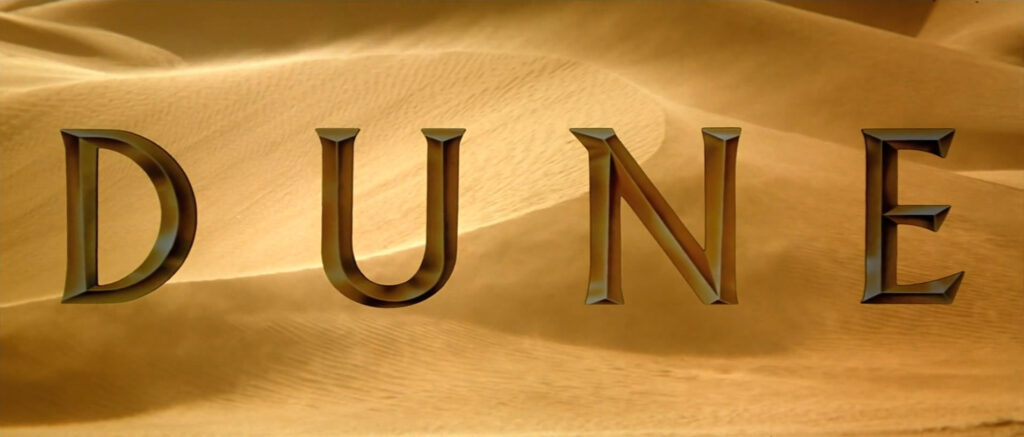
After the departure of Scott, David Lynch was brought on to direct the De Laurentiis movie. While Lynch was ultimately the first to bring Dune to the silver screen, he described the experience as a “nightmare.” The director had no control over the final cut of the film, and the resulting 137-minute theatrical release appears to prove that Dune cannot be adapted into a single movie.
A longer version was planned for TV, but discussions between Lynch and Universal broke down. The resulting three-hour cut was such an abomination that Lynch had his name removed from the credits, resulting in this TV edit often being referred to as the “Alan Smithee Version”.
For more information on the problems that plagued Lynch’s Dune movie, please see Max Evry’s book A Masterpiece in Disarray: David Lynch’s Dune. An Oral History.
Sci-Fi Channel’s Dune Miniseries (2000 and 2003)
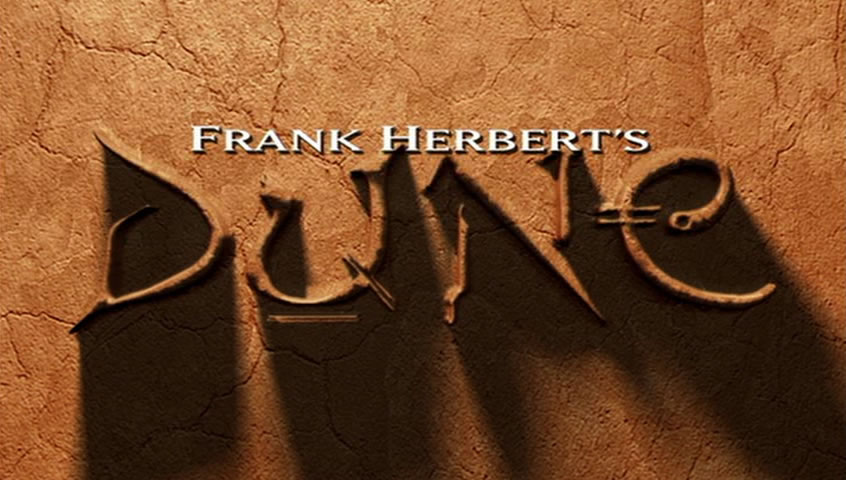
In 2000, the Sci-Fi Channel (now known as Syfy) released a three-part TV series titled Frank Herbert’s Dune, covering the original novel. It was successful enough that three years later they released Children of Dune, another three-part miniseries—this TV production adapted the next two novels; Dune Messiah (one episode) and Children of Dune (two episodes).
The production was not entirely without problems, such as a noticeably limited budget. Moreover a few actors were unable to return for the second series, resulting in several major characters—including Lady Jessica—needing to be recast. Nonetheless, this TV series largely appears to have avoided the “curse” of Dune, further establishing how Dune needs more runtime to tell its story successfully.
Paramount’s Dune (2007-2011)

In 2007 Paramount Pictures acquired the rights to Dune and hired Peter Berg to direct. The movie ran into problems almost immediately when the Writers Guild of America went on strike for 99 days, from November 5, 2007 to February 12, 2008. After the strike ended, work on a script and concept art progressed, but Berg left the project in late 2009. A few months later (early-2010) Pierre Morel took over as director.
Seemingly not having learnt the lessons from the problems with Lynch’s Dune—or the success of the four-and-a-half-hour TV miniseries—a script condensing the entire novel into a two-hour movie was produced.
Paramount lost its second director when Morel left towards the end of 2010. When film rights expired in Spring 2011, they were unable to reach an agreement to renew them, as the license holders didn’t “want to extend an option and watch the studio take seven years.”
Dune: Part One (2021)
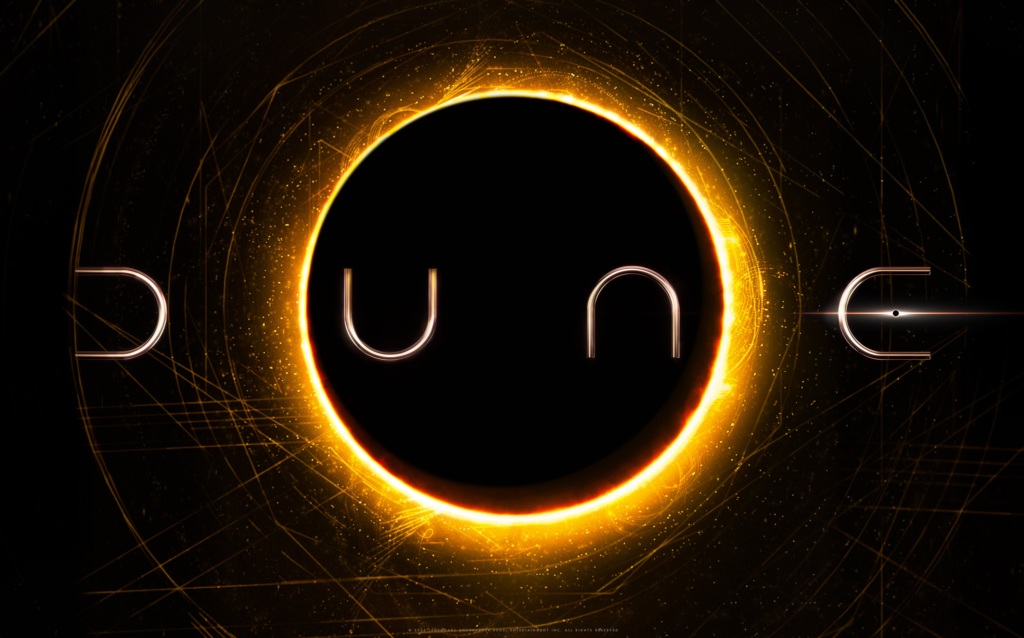
On November 21, 2016, Legendary Entertainment announced it had acquired the rights from the Frank Herbert estate for Dune, granting the production entity both film and television motion picture rights to the work. A month later Denis Villeneuve—who at that point was still working on Blade Runner 2049—was in talks with Legendary to direct.
Blade Runner 2049 was released in October 2017, although it wasn’t considered to be a commercial success. Legendary kept their faith in Villeneuve, and filming began on March 18, 2019. Production appears to have run smoothly and Dune: Part One was due for release on November 20, 2020… However, in August 2019, its release date was pushed back four weeks to December 18, 2020.
In early 2020 the number COVID-19 cases around the world began to rise, and by March many countries had imposed lockdowns. With Dune’s release still nine months away at that point, many fans weren’t worried – surely it would all be over by Christmas?
On September 9, 2020, the first Dune: Part One trailer was released, but soon afterwards the movie was delayed to October 1, 2021. As 2021 rolled on, with many cinemas still having COVID restrictions imposed on them, Warner Bros. decided that Dune would also be released on HBO Max (in the U.S.) the same date as its theatrical release.
Ultimately the worldwide release dates for Dune: Part One were a mess, ranging from mid-September 2021 for most of Europe through to October 22, 2021 for the United States, and December 2, 2021 for Australia and New Zealand!
Dune: Part Two (2024)
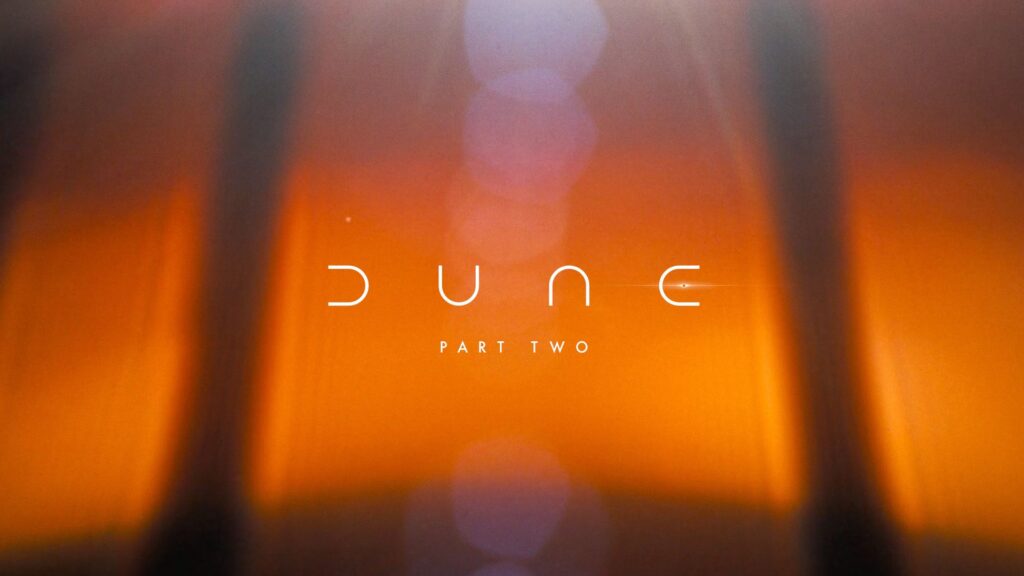
Just four days after the United States release of the first movie, Dune: Part Two was officially greenlit. Filming started in early July 2022, with a planned release for November 2023, but the “curse” hit again! The Writers Guild of America went on strike on May 2, 2023, followed by SAG-AFTRA (the Screen Actors Guild) on July 14.
While filming of the movie had finished, striking actors are unable to promote any movie, and therefore would be unable to attend red-carpet events or give interviews. On August 24, 2023, Warner Bros. announced that Dune: Part Two was delayed until March 15, 2024. It was a small consolation that the movie’s release date was later moved forward two weeks, to maximize its theatrical run.
One of the driving forces behind the strikes was the use of AI to replace writers and actors – it seems once again that Thinking Machines are the cause of trouble in the universe of Dune.
Dune: The Sisterhood Prophecy (2024)

In stark contrast to the apparent ease of production for the two Sci-Fi Dune miniseries, the latest production for the small screen—this time a prequel story—has faced more than its fair share of setbacks and delays.
On June 10, 2019, a new HBO Max TV series titled Dune: The Sisterhood was announced to be produced by Legendary’s television division. Jon Spaihts, one of the writers on Dune: Part One, was to be the showrunner, but in November 2019 he stepped down to concentrate on writing the script for Dune: Part Two.
The pilot episode would have been directed by Denis Villeneuve, but in April 2022 it was announced that Johan Renck would instead direct the first two episodes. The reason given for Villeneuve stepping down was so that he could concentrate on Dune: Part Two, however the decision to release Part One on streaming day-and-date with the U.S. theatrical release (October 2021) may have soured the director’s relationship with the HBO division. Villeneuve’s name has also disappeared from executive producers credits for the TV series, as listed on IMDb.
Originally due to start filming in November 2020, it wasn’t until a full two years later in November 2022 that production began. Soon enough, however, the project had entered hiatus, starting in February 2023, when Renck left the TV series. Creative differences were cited, allegedly his approach was not matching with the look and feel of Dune: Part One.
In September 2023 filming restarted in Budapest, with Anna Foerster now in the director’s chair, and with several changes in the cast—partly due to scheduling conflicts. On November 2, 2023 at a HBO press event, the show was given a new name of Dune: Prophecy, and is now expected to premiere on Max in the fall of 2024.


